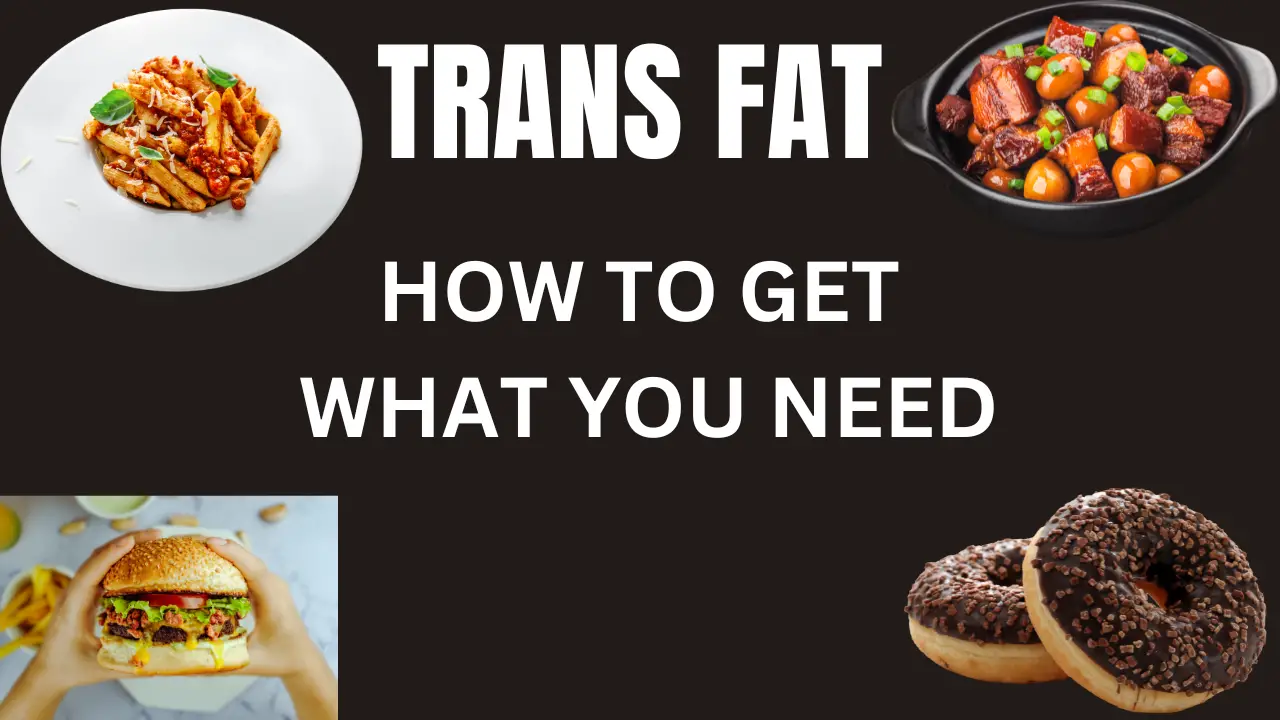Physical Address
304 North Cardinal St.
Dorchester Center, MA 02124
Physical Address
304 North Cardinal St.
Dorchester Center, MA 02124

Trans fats, often called “bad fats,” are artificial fats created through a process called hydrogenation. These fats are found in many processed foods like fried snacks, baked goods, and margarine. They're harmful because they raise the “bad” LDL cholesterol levels in our bodies while lowering the “good” HDL cholesterol. This can increase the risk of heart disease, stroke, obesity and other health problems. In this article we will get to know about the implication of trans fats and tips for eliminating trans fats from Your diet.
The health implications of trans fats are extensive and encompass a range of significant risks to our well-being. These implications stem from the harmful effects that trans fats have on various bodily functions and systems. Here, we delve into the consequences of consuming trans fats, highlighting the manifold health risks involved.
It significantly increase the likelihood of heart disease, heart attacks, and the hardening of arteries by raising levels of “bad” LDL cholesterol while lowering “good” HDL cholesterol. This imbalance in cholesterol levels can lead to the accumulation of plaque in arteries, a process known as atherosclerosis. Over time, atherosclerosis can culminate in heart disease, ultimately resulting in conditions like heart attacks and angina.
The augmented levels of LDL cholesterol prompted by these fats can also predispose individuals to strokes. This occurs as the elevated LDL cholesterol contributes to the formation of blood clots, which may obstruct blood flow to the brain, leading to strokes. Strokes are incapacitating events with profound health consequences and necessitate immediate medical attention.
Consuming these fats may lead to weight gain and obesity. Excessive weight can exacerbate the propensity for heart disease, diabetes, and other health issues, underscoring the importance of controlling trans fat intake in maintaining a healthy weight.
Excessive trans fat intake has been associated with challenges in reproductive health and an increased likelihood of experiencing difficulties during pregnancy.
Trans fats can hinder the absorption of vital nutrients within the body, including omega-3 fatty acids. These nutrients play a pivotal role in promoting heart and brain health, and their diminished absorption can have detrimental consequences for overall well-being.
Trans fats are widely recognized for their ability to foster persistent inflammation throughout the body. This enduring state of inflammation is closely associated with various chronic conditions, such as heart disease, diabetes, and cancer. Chronic inflammation can also give rise to joint ailments and other health challenges, posing a significant threat to overall health and wellness.

Start by carefully checking the nutritional labels on packaged foods .If you spot that the product contains trans fats, then it's best to avoid or choose a healthier alternative.
Cooking your meals at home allows you to select healthier cooking oils and methods. Opt for oils like olive, canola, or avocado, all of which are low in saturated and trans fats. When cooking, consider healthier techniques such as baking, grilling, steaming, and sautéing instead of deep-frying.
Fast food outlets and many restaurants often use trans fats for frying. Limit your consumption of fast food and fried dishes when dining out.
Be vigilant with dairy products like creamers and whipped toppings, as some may contain trans fats. Choose products labeled as trans fat-free or switch to healthier alternatives like skim milk and plain yogurt.
Keep yourself updated about food brands and products that have taken steps to eliminate trans fats from their offerings. Opt for brands that prioritize your health by offering trans fat-free choices.
Consider supporting healthier food options in your community and endorsing policies that restrict the use of trans fats in food production. Your involvement can contribute to a healthier food environment for all.

In conclusion, the elimination of trans fats from your diet is a fundamental commitment to your overall health and well-being. Trans fats pose grave risks, including heart disease, diabetes, and cognitive decline. By conscientiously reading food labels, embracing whole and unprocessed foods, cooking at home, and making informed choices, you can safeguard your health. Additionally, advocating for healthier food options in your community and supporting brands committed to eliminating trans fats can contribute to a broader movement towards a healthier food environment.
Reducing trans fat intake may contribute to weight loss indirectly by promoting healthier eating habits and reducing the risk of obesity-related health problems.
Yes, reducing trans fats is beneficial for people of all ages, including children, as it promotes healthier growth and development.
Health improvements can vary, but positive changes can often be observed within a few weeks to months.
Be cautious with commercially produced baked goods, as they may contain trans fats; consider baking your own with healthier oils or looking for trans fat-free options.